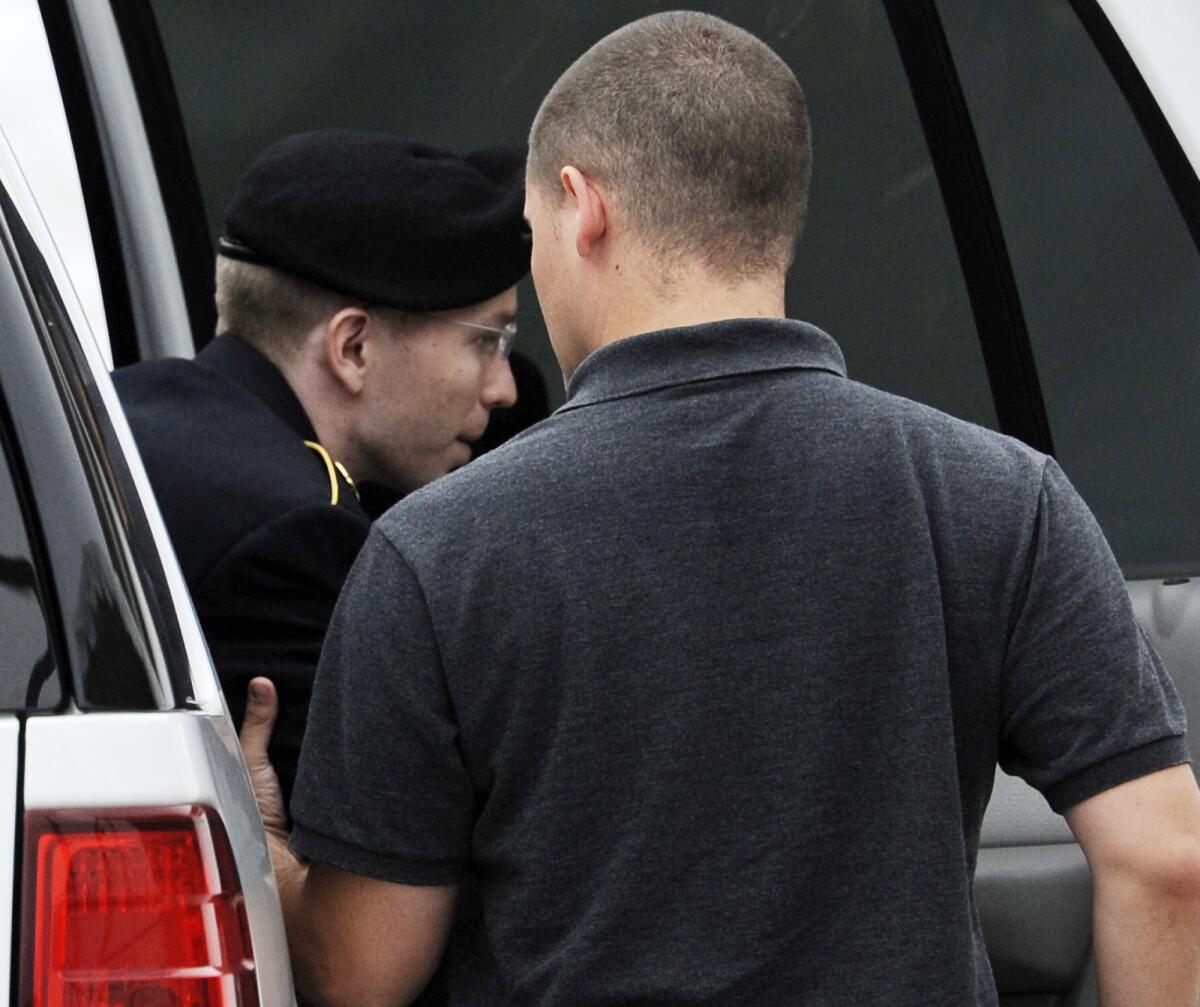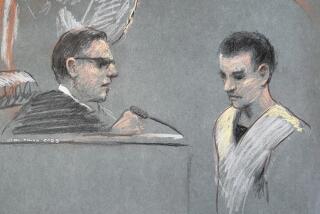Manning deliberately disclosed secrets, prosecutor says in closing

Army Pfc. Bradley Manning is escorted into a courthouse for his court marial at Fort Mead, Md., on Thursday.
FT. MEADE, Md. -- Bradley Manning purposely joined the Army and deployed to Iraq to use his extensive computer skills to gain access to a trove of protected secrets that he knew would assist terror organizations in their efforts to attack the United States, the chief prosecutor in Manning’s military court martial said Thursday.
“WikiLeaks was merely the platform that Pfc. Manning used to make sure all the information was available to the world, including the enemies of the United States,” said Maj. Ashden Fein in closing arguments at the end of Manning’s trial here. “Pfc. Manning deliberately disclosed compromised information to the world.”
Fein stood in his blue, decorated uniform before the judge and outlined the heart of the government’s case -- that Manning all along sought out WikiLeaks as his vehicle for exposing more than 700,000 combat videos, detainee assessments, State Department cables and other highly secret materials.
“He was not a naive soldier,” Fein said.
He told the judge, Col. Denise Lind, that the government rejected the defense claim that Manning was troubled by what he learned while stationed in an intelligence-gathering hut southeast of Baghdad and wanted to share with the public his concerns that the Pentagon and Washington were not being truthful about how they were waging war in Iraq and Afghanistan.
In truth, said Fein, “the only human Pfc. Manning ever cared about was himself.”
On the wall in the small courtroom he displayed a picture of Manning appearing “gleeful and grinning” when he sent his first links to the anti-secrecy organization WikiLeaks, and signed it, “Have a Good Day.” Said Fein, “He was interested in making a name for himself. The flag meant nothing to him.”
The government presented 160 documents and more than 80 witnesses in its effort to prove Manning deserves life in prison for espionage and efforts to aid the enemy. Fein noted that the 25-year-old soldier not only underwent extensive training against leaking classified material but also taught it to fellow intelligence analysts.
“He understood what he taught others,” the prosecutor said. “He knew releasing such information on the Internet would be in the hands of terrorists and other adversaries of this nation.”
The government’s case also showed that once Manning approached WikiLeaks and its founder, Julian Assange, they began to collaborate to disclose more and more material. Fein said Manning was so deep into it with Assange that he once told the man notorious for his campaign against government secrets that he totally embraced his ideology. “Government agencies can’t control information,” Manning told Assange.
Defense attorneys are scheduled to start their closing argument later this afternoon.
ALSO:
Crowds flock to New Mexico for sight of rare tropical bird
How a one-of-a-crowd tabloid site became Anthony Weiner’s problem
Sediment eases flames at natural gas rig well off Louisiana’s coastline
More to Read
Sign up for Essential California
The most important California stories and recommendations in your inbox every morning.
You may occasionally receive promotional content from the Los Angeles Times.











